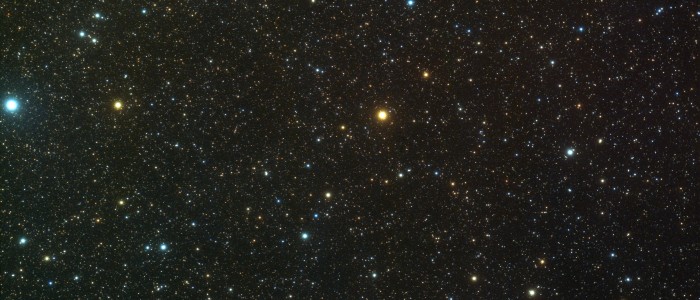Two principal questions have circulated in the media in an otherwise quiet summertime, in terms of space activities. First, do we need a spare planet, secondly, is artificial intelligence a danger to our existence?
As an introduction to the Starmus Festival in Norway last spring, the physician Steven Hawkins said that if the destruction of our planet Earth continues this rapidly, or if people were to face destruction by celestial bodies, it is necessary to find a new planet people can evacuate to, and quickly, that is.
Not everybody agreed on that.
The Earth has a population of nearly eight billion people, and it is hardly possible to evacuate the entire population on earth, so who could or should be evacuated, in worst-case scenario?
Should one evacuate mainly the geniuses? No. The Earth has none to lose. The youngest? No. The Earth needs also them.
Evacuating to a new planet seems to be a bad idea.
The best course of action seems to be to further develop the Earth to be the best place in the universe, and deal with all the problems facing us all, whether it be environmental issues, economical or extra-terrestrial fears.
The Earth seems hospitable for the foreseeable future, but one may quickly deem it necessary to take some radical actions. Overconsumption is a huge problem today, placing huge burdens on third world nations who barely get by as it is today. How people preserve or abuse the environment could largely determine whether living standards improve or deteriorate. Growing human numbers, urban expansion, and resource exploitation do not bode well for the future. Without practicing sustainable development, humanity faces a deteriorating environment and may even invite ecological disaster.
Many steps toward sustainability can be taken today. These include using energy more efficiently; managing cities better; phasing out subsidies that encourage waste; managing water resources and protecting freshwater sources; harvesting forest products rather than destroying forests; preserving arable land and increasing food production
However, what about the potentially dangerous celestial bodies?
Could they hit the Earth and destroy parts of the population, possibly all? Today, that seems highly likely, however, in a few decades it should be preventable.
Currently, there are instruments that can detect such bodies ahead of time before the bodies may hit the Earth, and within the foreseeable future tools will be developed that can control the bodies, and send them to a new trajectory, in good distance from our Earth.
The conclusion must be – take care of the Earth and the Earth will the best place in the Universe.
One more principal question popped up in media late this summer.
Artificial Intelligence – a very useful advance or a danger to our existence?
While many scientific institutes use large resources to develop artificial intelligence, others again, warn about the consequences for humankind. Artificial intelligence may have a great advance within many fields, but the risk is, some claim, artificial intelligence can take control over us.
The last few people to call out a warning is the famous physician and thinker Steven Hawkins and the industrial founder Elon Musk. To tamper with artificial intelligence has risks. At one point, the artificial intelligence can start its own development. Human intelligence, connected to biological processes, cannot compete, and will ultimately fall behind. Artificial intelligence will take control, it is claimed. Today, however, that is not a topic or even a risk, but it seems wise to keep in one’s mind, whether one is a scientist or a politician.
Artificial Intelligence must not be confused with machine learning or autonomy.
Machines can carry out the most complicated operations already today, but that is in form of “machine learning” or autonomy. Well known is the mobile lawnmowers. They do not have its own intelligence, but carry out the work people have programmed them to carry out. If they were intelligent the machine could have the capacity to evaluate the work themselves, not working on holidays, not working in bad weather, not cutting the grass if it not grown etc., or in the worst case, refuse to work at all. However, luckily for us, they cannot.
Autonomy in Space – Very Useful Tool
Within space research, machine learning is a very useful tool. An order to a Mars instrument takes between 10-30 minutes, depending on how the two planets are related to each other. An answer from the rower takes an additional 10-30 minutes. In addition, the communication depends on spare time at the American Deep Space Network, or other similar networks.
Instruments that can make routine decisions at the place is therefore very valuable. That is possible, but the program engineer must have presupposed the situation and programmed the machine to solve the problem. Today’s computers do not have any ability to reason logically if a problem occurs, it must be programmed beforehand.
Robots at the Mars Surface have become more and more advanced over the years, moving around on the surface. Vehicles from Sojourner to Curiosity have operated more than more independently on orders from earth, not due to their own artificial intelligence, but based on increasingly more advanced data programs. The Mars 2020 vehicle is in construction very similar to Curiosity, but the data program that will follow the lander, or transferred after landing, will be even more advanced, causing Mars 2020 to work very independently on the Mars surface.
Artificial Intelligence


